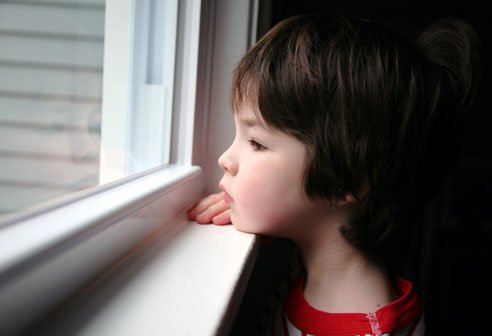When it comes to leaving kids alone, how long is too long? That’s the question being asked by many after several reported cases of parents getting in trouble with the law for leaving their children alone. Most legislation on the matter is vague. Take the state of Illinois, for example. The law says children under 14 are considered willfully abandoned if left alone for any “unreasonable” amount of time.
That such an open-ended law could end up on the books indicates a case-by-case approach, but it doesn’t always seem to work. Natasha, a mother living in the Chicago area, says she let her three sons, aged eleven, nine, and five, play at the park opposite her apartment complex. There weren’t out even out of her sight—she was watching them from her window—and yet charges of neglect were brought against her, resulting in a serious disruption to her life.

“I can’t go on field trips with my sons because they do background checks,” she says. “My kids know I’m a great mom to them.” To fight the charges, she was forced to give up her plans for nursing school.
“Letting your kids go to the park, we don’t think any of that constitutes blatant disregard as the law defines it,” said Diane Redleaf, one of the family attorneys representing Natasha.
Natasha’s story isn’t unique. In April of this year, Danielle and Alexander Meitiv had to wrestle their kids from Children’s Protective Services after allowing them to walk home from the park. In Florida, two parents were hit with felony neglect charges after neighbors reported their son was playing basketball alone in the backyard for an hour and a half. They say they were running late that day, and weren’t home in time to unlock the door for their son.
Natasha says she hopes her case will set a precedent for others. “Even if it doesn’t come off my record, other people shouldn’t have to go through what I went through.”
Redleaf added: “We have opened the door to rampant calls against people in circumstances that are in no way neglect and we have to put some guidelines down on paper and in practice,” said Redleaf. “And only if they blatantly disregard their duty as parents should the state step in.”
Cases like Natasha have inspired the “free-range” movement—a loose collection of activists and organizations that seek to prevent these kinds of incidents from happening. Some of them want to change legislation to give more leeway to parents.
“A Free-Range Kid is a kid who gets treated as a smart, young, capable individual, not an invalid who needs constant attention and help,” writes Lenore Skenazy, a mother and free-range kid activist living in New York City. She’s the author of a popular book called “Free-Range Kids: How to Raise Safe, Self-Reliant Children (Without Going Nuts with Worry)”, and the star of the Canadian television show World’s Worst Mom.
In a piece for The Atlantic, Skenazy reported only 13 percent of children in the U.S. walk to school, and only six percent of 9-13 year olds play outside in a given week.
Responding to a scathing report issued by Redleaf’s Family Defense Center, Illinois’ Department of Children and Family Services stated:
“Ultimately the Department of Children and Family Services considers all allegations of inadequate supervision on a case by case basis, because what may be appropriate under certain circumstances may be considered child neglect in others.”
They added that parents and caregivers should “consider all the risks involved when thinking about leaving children alone and to recognize the signs, such as maturity, acceptance of responsibility and awareness of the needs of others, when a child shows that he or she may be ready.”
